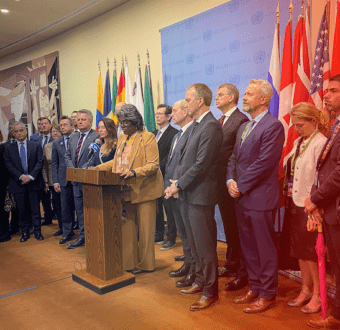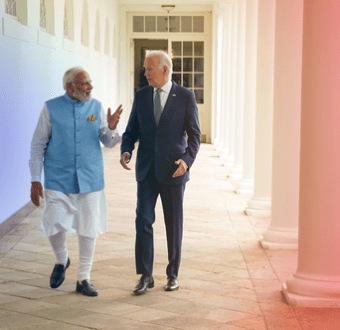Is America’s Period of Relentless War Really Over

Young Americans are tired of wars and want to see “relentless diplomacy” instead.
By Caroline Gray, Senior Researcher
This article appeared in Inkstick on September 29, 2021.
In his speech at the UN General Assembly last week, President Joe Biden made his case to world leaders that the United States is reliable, trustworthy, and maybe most important, for the first time in twenty years, not at war.
Indeed, the United States marked an official end to its longest war in August after the withdrawal of the remaining ground troops from Afghanistan. But given the tragedy of the US drone strike in Kabul that killed 10 civilians, including seven children last month (which the Pentagon finally admitted too just recently) has America really closed this chapter? And what do young Americans, who have known nothing but their country at war, think about this?
A new poll by the Institute for Global Affairs suggests young Americans (18 to 29 year-olds) are wary of the post-9/11 counterterrorism policies past presidents have used, and ones President Biden might soon rely more on. Nearly 60% of young Americans reject the use of drone strikes because they are either imprecise and endanger civilians or they stoke anti-American sentiment around the world. While President Biden might put an end to relentless ground wars, he also plans to employ an “over-the-horizon” strategy to respond to terrorist threats. This strategy allows the administration to combat terrorism via aerial surveillance and drone operations launched from bases outside of Afghanistan’s borders.
So, when President Biden says that “US military power must be our tool of last resort,” does that include drone strikes too? The answer is likely no. After the attack at Kabul airport on Aug. 27, 2021 that killed 13 US servicemembers and more than 150 Afghans, the Biden administration’s drone policy review was thrown out the door, and the CIA began reconsidering counter-terrorism possibilities in the region that they had intended to leave behind with the war’s end.
Read more of Caroline’s article in Inkstick.

Written by Caroline Gray
Caroline is a senior researcher with the Independent America project at the Institute for Global Affairs and producer of the podcast, None Of The Above.
Read more from Caroline
This post is part of Independent America, a research project led out by IGA senior fellow Mark Hannah, which seeks to explore how US foreign policy could better be tailored to new global realities and to the preferences of American voters.














What Are Sanctions and How Do They Work? A History of US Economic Sanctions